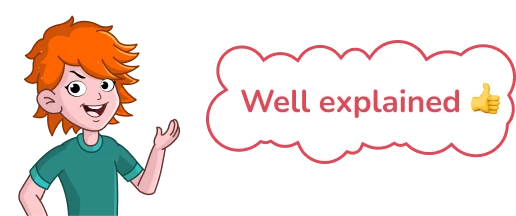
 121 Learners
121 LearnersLast updated on June 5th, 2025

Divisibility Rules

When dividing numbers, there are rules that are applied to a number to determine whether a number is divisible by a particular number or not. We call these divisibility rules. In this topic, we are going to learn about different divisibility rules.
What are Divisibility Rules?
Divisibility rules help us determine whether a number can be evenly divided by another without performing division. They allow us to skip long division and quickly determine a number’s divisibility mentally. These rules help us determine the divisor of a number just by considering the digits of that number.
We also call them divisibility tests, as they help in larger calculations and simplify the dividing of numbers.
For example, if there are 201 documents to distribute among 3 people, we can use the divisibility rule of 3. Add the digits (2 + 0 + 1 = 3), we see that 3 is a multiple of 3. So, 201 is divisible by 3, meaning the documents can be shared equally. Below is a table of some divisibility rules that we use:
|
Divisibility by Number |
Divisibility Rule |
|
Divisibility by 2 |
A number that is even or a number where the last digit is an even number, i.e., (0, 2, 4, 6, 8, …) |
|
Divisibility by 3 |
The sum of its digits is a multiple of 3. |
|
Divisibility by 4 |
The last two digits form a number that is divisible by 4. |
|
Divisibility by 5 |
The last digit of the number should be 0 or 5 |
|
Divisibility by 6 |
A number is divisible by 6 if it is divisible by both 2 and 3. |
|
Divisibility by 7 |
A number is divisible by 7 if you double the last digit, subtract it from the rest of the number, and the result is a multiple of 7. |
|
Divisibility by 8 |
The last three digits form a number that is divisible by 8 |
|
Divisibility by 9 |
The sum of the digits should be divisible by 9 |
|
Divisibility by 10 |
The last digit should be 0. |
|
Divisibility by 11 |
The difference between the sum of its digits in odd places and even places is a multiple of 11. For example, in the number 7480, add the digits in the odd positions( from the right): 7 + 8 = 15. Then, add the digits in the even positions: 4 + 0 = 4. The difference between these sums is 15 - 4 = 11. Since 11 is a multiple of 11, the number 7480 is divisible by 11. |
|
Divisibility by 12 |
The number must be divisible by both 3 and 4. |
|
Divisibility by 13 |
Remove the last digit, multiply it by 9, and subtract the result from the remaining number. If the final value is a multiple of 13, the original number is divisible by 13 |
|
Divisibility by 14 |
The number should be divisible by both 2 and 7. |
|
Divisibility by 15 |
The number should be divisible by 3 and 5. |
|
Divisibility by 16 |
The last four digits form a number divisible by 16. |
|
Divisibility by 17 |
Remove the last digit, multiply it by 5, and subtract it from the remaining number. This result should be a multiple of 17 |
|
Divisibility by 18 |
A number is divisible by 18 if it meets both of these conditions: it is even (divisible by 2), and the sum of its digits is a multiple of 9 (divisible by 9). |
|
Divisibility by 19 |
A number is divisible by 19 if we remove the last digit, multiply it by 2, and add it to the remaining number, which should give a multiple of 19. |

Common Mistakes and How to Avoid Them in Divisibility Rules
When learning about divisibility rules, students may confuse them with other rules. Here are some common mistakes that students make and ways to avoid them:
Real-life Applications of Divisibility Rules
Divisibility rules are used widely in various fields. Here are a few real-world applications of divisibility rules:
Banking: Banks use divisibility rules to verify account numbers or credit card numbers. They use divisibility rules to detect any kind of error in large transactions and account details.
Scheduling: Schools and offices use divisibility rules to divide time efficiently.
Packaging and distribution: To distribute products efficiently, companies use divisibility rules to ensure even distribution.

Solved examples on Divisibility Rules

Problem 1
Is 4,678 divisible by 2?

Yes, it is divisible by 2.
Explanation
A number is divisible by 2 if its last digit is even. The last digit of 4,678 is 8, which is even, so it is divisible by 2.

Problem 2
Can 5,217 be divisible by 3?

Yes, 5,217 is divisible by 3.
Explanation
To know if the number is divisible by 3, add the digits: 5 + 2 + 1 + 7 = 15. Since 15 is divisible by 3, the number 5,217 is also divisible by 3.

Problem 3
Is 6,890 divisible by 10?

Yes, 6,890 is divisible by 10.
Explanation
A number is divisible by 10 if the last digit of the number ends in 0. Since 6,890 ends in 0, it is divisible by 10.

Problem 4
Is 91,483 divisible by 11?

No, it is not divisible by 11.
Explanation
To find the divisibility of 11 we need to find the sum of the digits in the odd places and the sum of the digits in even places. We then need to find the difference between the odd and even places.
(9 + 4 + 3) - (1 + 8) = 16–9 = 7.
Since 7 is not a multiple of 11, the number is not divisible by 11.

Problem 5
Is 5,200 divisible by 13?

Yes, it is divisible by 13.
Explanation
To check if 5,200 is divisible by 13, follow the divisibility rule for 13:
- Remove the last digit (0).
- Multiply the removed digit by 9: 0 × 9 = 0
- Subtract this from the remaining number: 520 - 0 = 520.
- Now, check if 520 is divisible by 13. Since 520 / 13 = 40 (a whole number), 5,200 is divisible by 13.


FAQs on Divisibility Rules
1.Why do we use divisibility rules in math?
2.What is the rule of divisibility rule of 3?
3. Can we apply divisibility rules for larger numbers like 11, 13, 17?
4. What is the divisibility rule for 5 and 10?
5.What is the divisibility rule for 8?
6.How can children in Singapore use numbers in everyday life to understand Divisibility Rules?
7.What are some fun ways kids in Singapore can practice Divisibility Rules with numbers?
8.What role do numbers and Divisibility Rules play in helping children in Singapore develop problem-solving skills?
9.How can families in Singapore create number-rich environments to improve Divisibility Rules skills?
Explore More numbers
![Important Math Links Icon]() Previous to Divisibility Rules
Previous to Divisibility Rules
![Important Math Links Icon]() Next to Divisibility Rules
Next to Divisibility Rules


Hiralee Lalitkumar Makwana
About the Author
Hiralee Lalitkumar Makwana has almost two years of teaching experience. She is a number ninja as she loves numbers. Her interest in numbers can be seen in the way she cracks math puzzles and hidden patterns.
Fun Fact
: She loves to read number jokes and games.




